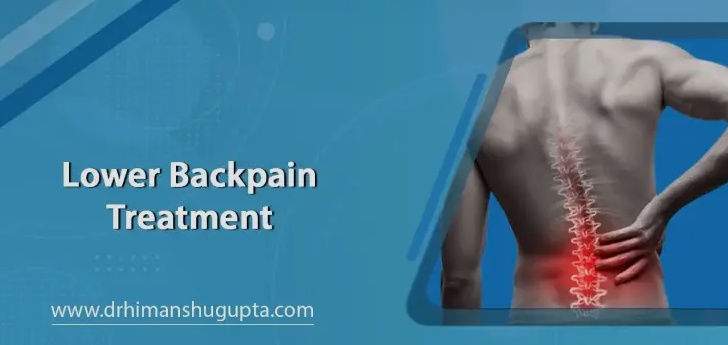Chronic lower back pain can significantly impact daily life and well-being. While it may not always be possible to cure the underlying cause completely, effective pain management techniques can provide relief and improve quality of life for individuals experiencing this condition. Here are some coping strategies and pain management techniques commonly used for chronic lower back pain:
1. Physical Therapy and Exercise
Physical therapy is a cornerstone of chronic lower back pain management. A trained therapist can design a tailored exercise program to strengthen muscles, improve flexibility, and correct posture. Specific exercises target the core muscles to provide better support for the spine and reduce strain on the lower back.
2. Pain Medications
Over-the-counter pain relievers like NSAIDs (nonsteroidal anti-inflammatory drugs) can help reduce inflammation and alleviate pain. Prescription medications, including muscle relaxants or opioids, may be considered for severe cases, but these are often used cautiously due to potential side effects and risks.
3. Heat and Cold Therapy
Applying heat or cold packs to the affected area can provide temporary relief from chronic back pain. Heat helps to relax muscles and improve blood flow, while cold therapy reduces inflammation and numbs the area. Alternating between heat and cold treatments can be particularly effective.
4. Mind-Body Techniques
Mindfulness meditation, yoga, and deep breathing exercises can help manage chronic pain by promoting relaxation, reducing stress, and improving overall well-being. These techniques also enhance body awareness and teach individuals to cope with pain more effectively.
5. Manual Therapies
Chiropractic care, massage therapy, and acupuncture are alternative treatments that some individuals find beneficial for chronic lower back pain. These therapies focus on realigning the spine, releasing tension in muscles, and stimulating specific points to reduce pain and improve mobility.
6. Lifestyle Modifications
Making lifestyle changes can significantly impact chronic back pain. Maintaining a healthy weight, practicing good posture, using ergonomic furniture, and avoiding prolonged sitting or standing can prevent exacerbation of symptoms.
7. Psychological Support and Counseling
Living with chronic pain can take a toll on mental health. Seeking support from a counselor or therapist can help individuals develop coping strategies, manage stress, and address any emotional challenges associated with chronic lower back pain.
8. Biofeedback Therapy
Biofeedback is a technique that helps individuals gain control over certain bodily functions by providing real-time feedback. It can be used to control muscle tension and reduce pain perception by training individuals to modify their physiological responses.
9. Injections and Nerve Blocks
For severe and persistent pain, injections such as epidural steroid injections or nerve blocks may be recommended. These procedures target specific nerves or areas of inflammation to provide temporary relief from chronic lower back pain.
10. Surgical Intervention
In cases where conservative treatments fail to provide relief, surgical options like spinal fusion or disc replacement surgery may be considered. However, surgery is typically reserved for severe conditions and requires careful evaluation by a specialist.
By adopting a multidisciplinary approach that combines various pain management techniques, individuals with chronic lower back pain can regain control over their lives and experience improved comfort and functionality. It's essential to consult with a healthcare professional to determine the most suitable treatment plan based on individual needs and underlying causes of pain. Dr. Himanshu Gupta, an experienced specialist in lower back pain treatment in Jaipur, can provide comprehensive care and guidance tailored to each patient's unique condition and preferences.


No comments yet